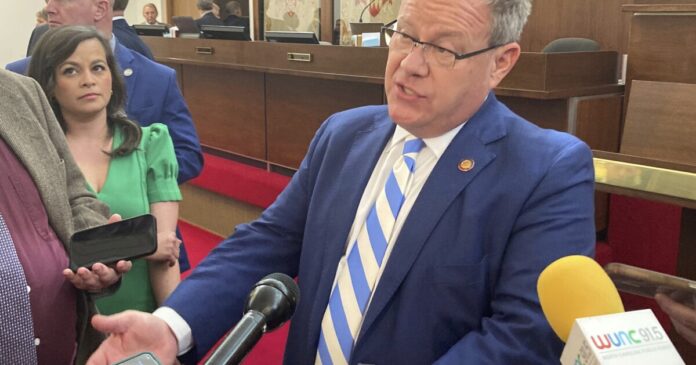The state House voted Wednesday to override three of Gov. Roy Cooper’s latest vetoes, but the controversial proposals are still likely months away from becoming law.
One of the bills would ban local governments from making regulations that tell landlords they can’t reject tenants who use federal housing vouchers. Rep. Marcia Morey, D-Durham, said that could harm efforts to address housing shortages.
“It’s discrimination to say you cannot consider federal subsidies when applying for housing, and we know there’s a severe housing crisis,” she said, adding that she finds other provisions in the bill to be unclear and confusing.
Another vetoed bill would ban state agencies from accepting digital currency for payments. The governor said North Carolina should wait on federal regulations to address the issue. Supporters of the bill have argued that it’s difficult to convert payments from a potentially volatile form of cryptocurrency into a dollar amount to be paid, but Rep. Mary Belk, D-Mecklenburg, disagrees.
“There’s enough space in the digital economy for everyone,” she said during Wednesday’s debate. “There’s no reason to limit our choices before we know what they are.”
The third bill on Wednesday’s agenda would adjust the regulations governing some off-road vehicles, known as modified utility vehicles, including a provision that would allow them to drive on highways at higher speeds, something Cooper said would be unsafe.
“It’s best that we err on the side of caution and make sure that we’re keeping the safety and security of those on the roads and law enforcement and everyone else in mind,” said Rep. Zack Hawkins, D-Durham.
The House voted mostly along party lines to override the vetoes. But the bills need final action from the Senate to become law, and that chamber isn’t holding voting sessions this month.
Both the Senate and House are scheduled to return Sept. 9, and House Speaker Tim Moore said further action on vetoed bills is possible then. Two other recent vetoes are awaiting action from the Senate before the House can take its votes.
“It’s a tough thing working around the schedules of 120 members to try to make sure you can accommodate as many schedules as possible,” Moore told reporters after Wednesday’s session.
